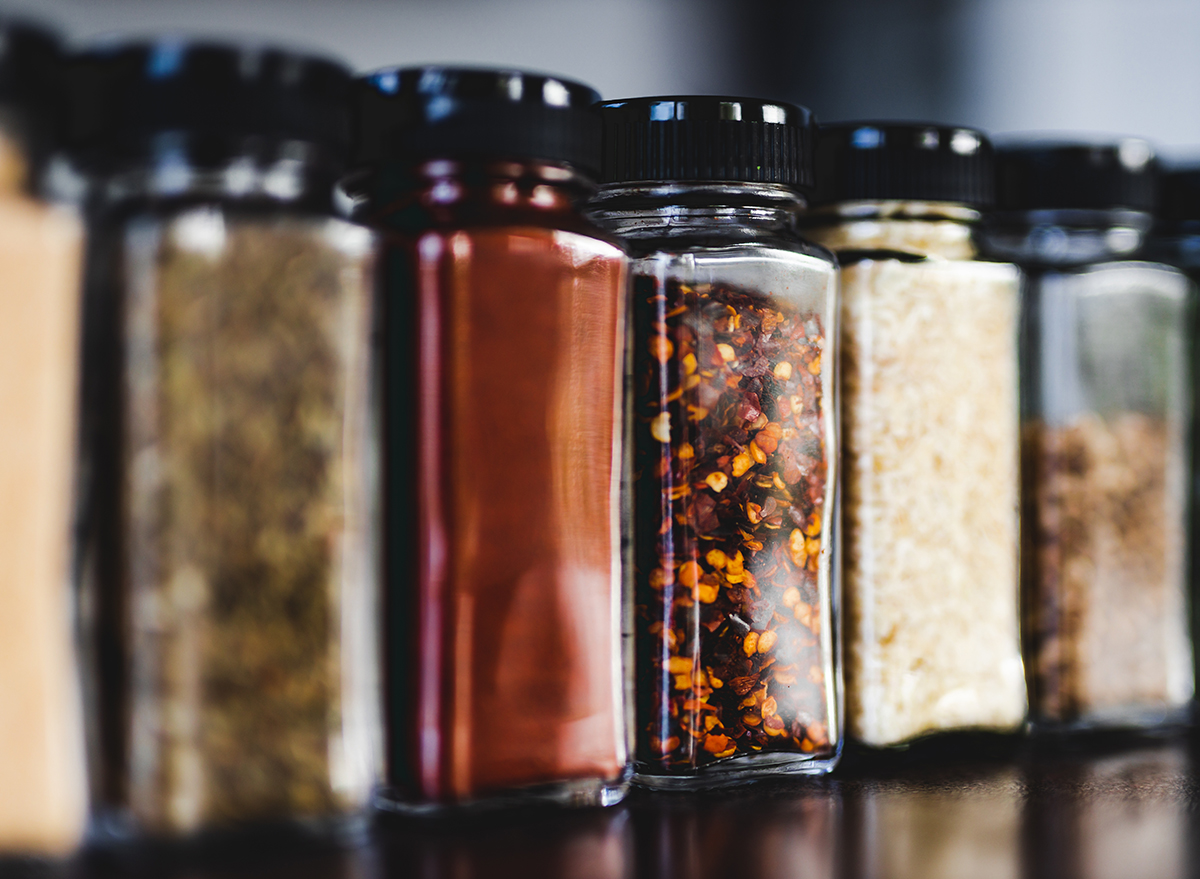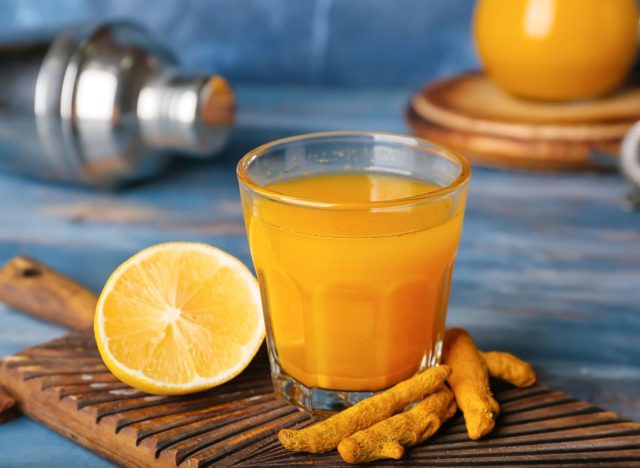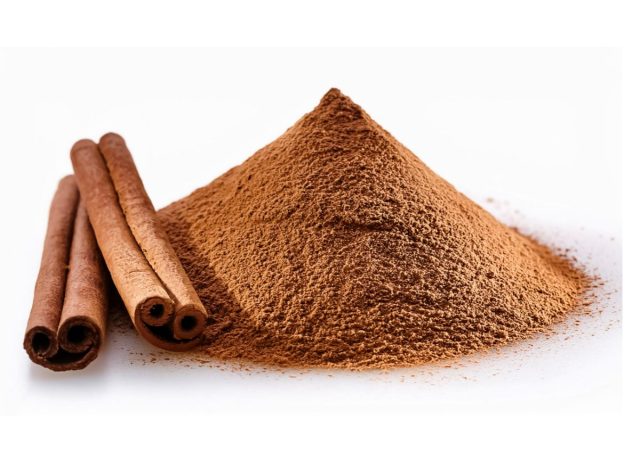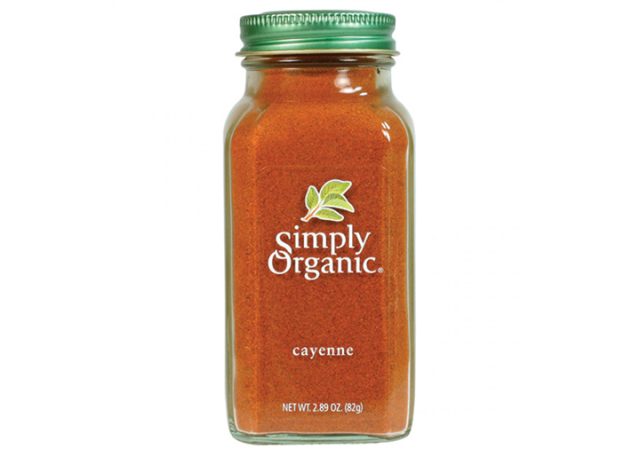5 Best Spices For Inflammation, Says Science

Beyond elevating the flavor of any dish, spices have long been celebrated for their healing properties. From boosting immunity to fighting off infection, spices are chock-full of health benefits, with a major selling point being their ability to lower inflammation.
While inflammation is the body’s natural response to fighting off illness and injury, too much of it can be quite destructive. This is known as “chronic inflammation,” which has been linked to a variety of health issues and diseases like arthritis, type 2 diabetes, heart disease, and cancer.
Luckily, eating an anti-inflammatory diet can help work wonders for your health. And chances are, many of the key ingredients are already in your kitchen cabinets. Read on to discover the best spices for reducing inflammation, and for more health tips, check out The #1 Best Juice to Drink Every Day, Says Science.
Turmeric

Turmeric, which is arguably one of the most well-known anti-inflammatory spices, has exploded in popularity over the last several years. The golden spice, commonly used in Indian cuisine, is teeming with over 300 active compounds, with the main one being curcumin—an antibacterial, inflammation-fighting antioxidant.
In a 2018 study, individuals who took curcumin-containing supplements daily for periods of time ranging from three days to 36 weeks experienced a significant reduction in inflammation compared to those who took a placebo. Additionally, another study on people with osteoarthritis has found curcumin supplements to offer pain relief similar to anti-inflammatory drugs like Ibuprofen.
However, it’s important to note that curcumin only makes up 3% of turmeric—and it’s difficult for the body to absorb it. To maximize turmeric’s effectiveness, it’s recommended to consume it with black pepper, which contains piperine—a compound that has been shown to increase curcumin absorption by up to 2,000%.
Black Pepper

This cooking staple has been nicknamed the “King of Spices” for a reason. The plant compound piperine is filled with antioxidants that have not only been found to increase your body’s absorption of nutrients (like curcumin), but have also been suggested to decrease free radical damage known to cause diseases.
While there is limited human research on the anti-inflammatory properties of black pepper, rodent studies suggest that piperine may effectively fight symptoms of inflammation like joint swelling.
Ginger

Known for its sweet, yet sharp flavor, ginger is one of the healthiest spices out there and is often referred to as a “superfood.” Aside from being revered for its ability to relieve nausea and indigestion, ginger has been found to reduce inflammation and infection due to its antioxidant and antibacterial compounds known as “gingerols.” Consequently, consuming ginger has been suggested to help alleviate arthritis symptoms like joint pain.
Depending on your ailment, ginger can be consumed as a tea, taken as a capsule or tincture, or applied as a topical cream or essential oil. However, the Arthritis Foundation recommends having it fresh by brewing up some ginger tea. Simply add a one- or two-inch piece of fresh ginger root to boiling water for 30 to 60 minutes, and reap the benefits of this versatile spice.
Cinnamon

From oatmeal to apple crisp, a dash of cinnamon is a surefire way to give any meal, drink, or dessert an aromatic, warming flavor. It’s also an easy way to boost your health. Cinnamon is high in cinnamaldehyde—an essential oil that not only gives the spice its distinctive flavor and smell but has also been suggested to have anti-inflammatory effects. Cinnamon’s antioxidant-rich properties have also been found to prevent cell damage, lower blood sugar, and improve cholesterol.
So, whether you’re blending up a smoothie, whipping up some pancakes, or roasting sweet potatoes, be sure to sprinkle in some cinnamon to take things up a notch.
Cayenne

If you’re looking to pack some heat in your cooking, cayenne will do just that. The spiciness of chili peppers (like cayenne) can be attributed to chemical compounds known as “capsaicinoids”—which have been suggested to serve as natural pain relievers.
Because of this, capsaicin, the main ingredient in cayenne peppers, can be found in many topical treatments aimed at easing muscle and joint pain. In fact, in a study published in Osteoarthritis Cartilage, researchers found that capsaicin cream may be “equally effective” to nonsteroidal anti-inflammatory drugs when it came to lessening pain in people with osteoarthritis.
Plus, cayenne is packed with vitamins, such as C and A, which play an essential role in immune system health.